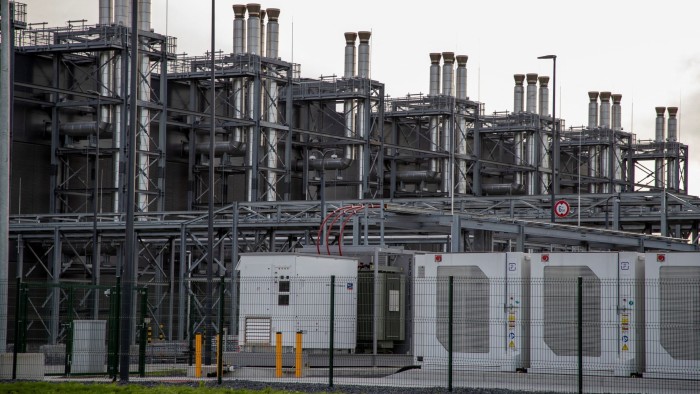Stay informed with free updates
Simply sign up to the Industrials myFT Digest — delivered directly to your inbox.
US industrial companies are pivoting into the data centre market to boost growth, seeking a share of the hundreds of billions of dollars flooding into the sector as part of the artificial intelligence boom.
Gates Industrial and Generac are part of a coterie of publicly listed companies that are increasing efforts to build and sell specialist equipment, which includes backup power generators and cooling pumps, designed for so-called hyperscalers such as Amazon, Alphabet, Meta and Microsoft.
Honeywell, a $153bn North Carolina-based industrial giant that produces products from aeroplane engines to warehouse robots, is also trying to tap the fast-growing data centre market with its cooling solutions.
“We’re seeing supersonic growth on the back of AI and in general over the past three years the price that you can get from the data centre customer has been stronger than the price elsewhere,” said Chris Snyder, an analyst at Morgan Stanley.
It comes after other US-listed groups, such as Caterpillar, Cummins and Johnson Controls, have capitalised on the data centre boom at a time when economic uncertainty and trade barriers erected under US President Donald Trump have weighed on spending by customers in manufacturing and the commercial real estate market.
US factory activity has been declining over the past few months, with the ISM manufacturing purchasing managers’ index staying steadfastly in contraction territory since March.
Spending on data centres has proven resilient with analysts anticipating that more than $400bn will be spent on the build-out of the infrastructure in the current fiscal year, according to Gartner. Hyperscalers make up more than three-quarters of this expenditure with spending predicted to grow next year.
Vimal Kapur, Honeywell’s chief executive, told investors during a recent earnings call the company was “focused on pivoting” into higher-growth verticals such as data centres. “Those segments are growing regardless of the current conditions,” he said.
Honeywell has in the past 18 months started to focus on providing controls for hybrid cooling systems to data centres and has experienced double-digit growth in sales of their new hybrid controller for data centres and similar applications.

Morgan Stanley’s Snyder said that servicing was likely to provide a long tail of business for industrial companies but cautioned that smaller players who had yet to break into the market could miss the boat given investment would eventually taper from elevated levels.
Colorado-based Gates Industrial, a manufacturer of equipment for the heavy duty trucking industry, has in the past year started to push into the market designing pipes and pumps used to circulate coolant around server racks, a key component at a time when Nvidia’s most advanced Blackwell chips for AI model training and applications mandate liquid cooling.
“A lot of [equipment] is mildly customised,” said Mike Haen, vice-president of global product line management at Gates, noting its products were generally transferable to data centres.
Generac, the US’s largest producer of home generators, has targeted the hyperscale market in a bid to rebuild its share price, which has plummeted as much as 75 per cent since its peak in 2021, due to softening demand in its core business. Management has sought to diversify into an array of businesses including home power cells and electric vehicle charging.
Ricardo Navarro, Generac’s data centre chief, said the company had recently invested $130mn in facilities to scale generators for large scale projects servicing hyperscaler demand.
“The situation with data centres is unique. Even if the economy slows down on the traditional markets . . . [it] is almost isolated from economic downturns,” he added.
Data visualisation by Ray Douglas
